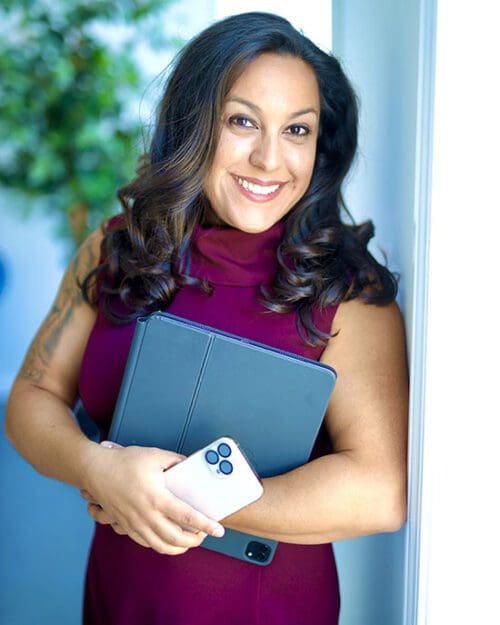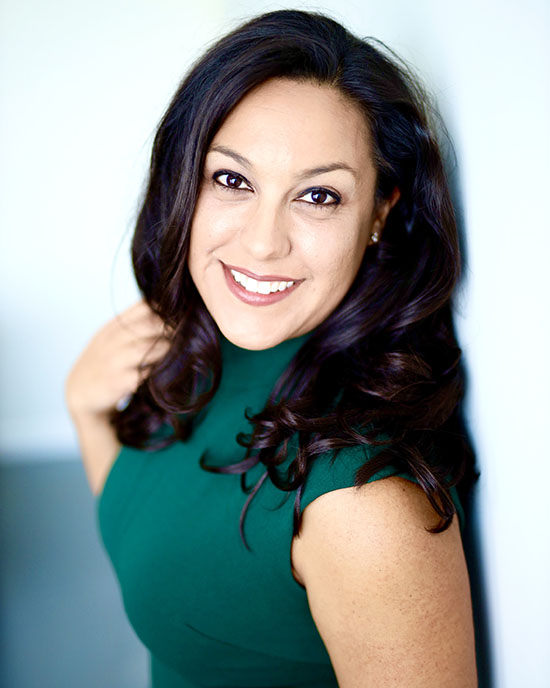PNW alumna creates app to help parents provide correct medication dosages to sick kids

Balancing medications and sick children can be a challenge.
Thanks to a Purdue University Northwest (PNW) alumna, there’s now an app and website for that.
Amanda Velasco, who graduated with a bachelor’s degree in nursing in 2009, is the founder of The Pedi Dose, an app and web-based platform that parents can use to provide proper medication management to their sick children.
The idea for The Pedi Dose came from her time as an emergency room nurse, caring for kids who weren’t receiving the correct dose or even any medication because parents didn’t know the dosage of acetaminophen and ibuprofen.
“The discharge papers got lost or didn’t get used,” said Velasco. “I knew there had to be a better way, especially a digital option because parents always have their phones, tablets or computers with them. The Pedi Dose is my solution to address this problem.”
She started of thinking of ways to tackle the issue. Velasco grabbed a notebook and started sketching what she wanted the app to look like.
Once she finalized the drafts, she began working with a developer, who produced exactly what she envisioned. The Pedi Dose was launched in January 2022 as a trial, which included lots of feedback.
I want every child to have effective medication management.
Velasco sees the feedback as an opportunity for growth and, additionally, continued belief and investment in herself and her future.
“We’re always going to grow. There are more opportunities for growth,” Velasco said.
Safety features abound in the app. Warnings are included, as even common over-the-counter medications have age restrictions or call for physician directions. Currently, acetaminophen and ibuprofen are the items that can be dosed via the app.
Velasco found her way to Purdue Northwest via the International University of Nursing in St. Kitts. The San Jose, California, native was drawn to nursing because she aided a neighbor who injured himself after falling off his dirt bike.
 Following graduation with her nursing degree, she returned to California, where she worked at Cedars-Sinai Medical Center in Beverly Hills. She later transferred to Stanford Hospital, where she specialized in pediatrics.
Following graduation with her nursing degree, she returned to California, where she worked at Cedars-Sinai Medical Center in Beverly Hills. She later transferred to Stanford Hospital, where she specialized in pediatrics.
Her caregiving instincts still shine through with this app.
“I want every child to have effective medication management,” she said.
Velasco has always relied on research in her nursing career and has expanded its use in her businesses, including surveys and feedback. The app is free to download for a limited time and costs $2.99 a month or $19.99 for a year.
“When I set out with this in my mind and I knew it was possible, there were so many people who told me it wouldn’t be successful,” Velasco said. “But at a recent nursing conference, several people told me how they could tell it was developed by a nurse.”
Parents, grandparents and caregivers can download the app or visit the website and set up an account. After a child’s age and weight are entered, the app can alert adults who are caring for a sick child about medication timing and amounts. Educational resources and timed text reminder options are available on the app.
Parents can log daily prescriptions and over-the-counter meds and use those records for doctor’s visits.
Velasco has several goals, including improving caregiving and avoiding costly emergency department or doctor’s office visits by providing the app.
“My big goal with this is that families will utilize the app to give correct weight-based doses to their children. I have provided the ability to have several children under one profile. When people download it, I encourage them to create a family profile, create a family account, family email and password, so grandparents and caregivers can log into it.”